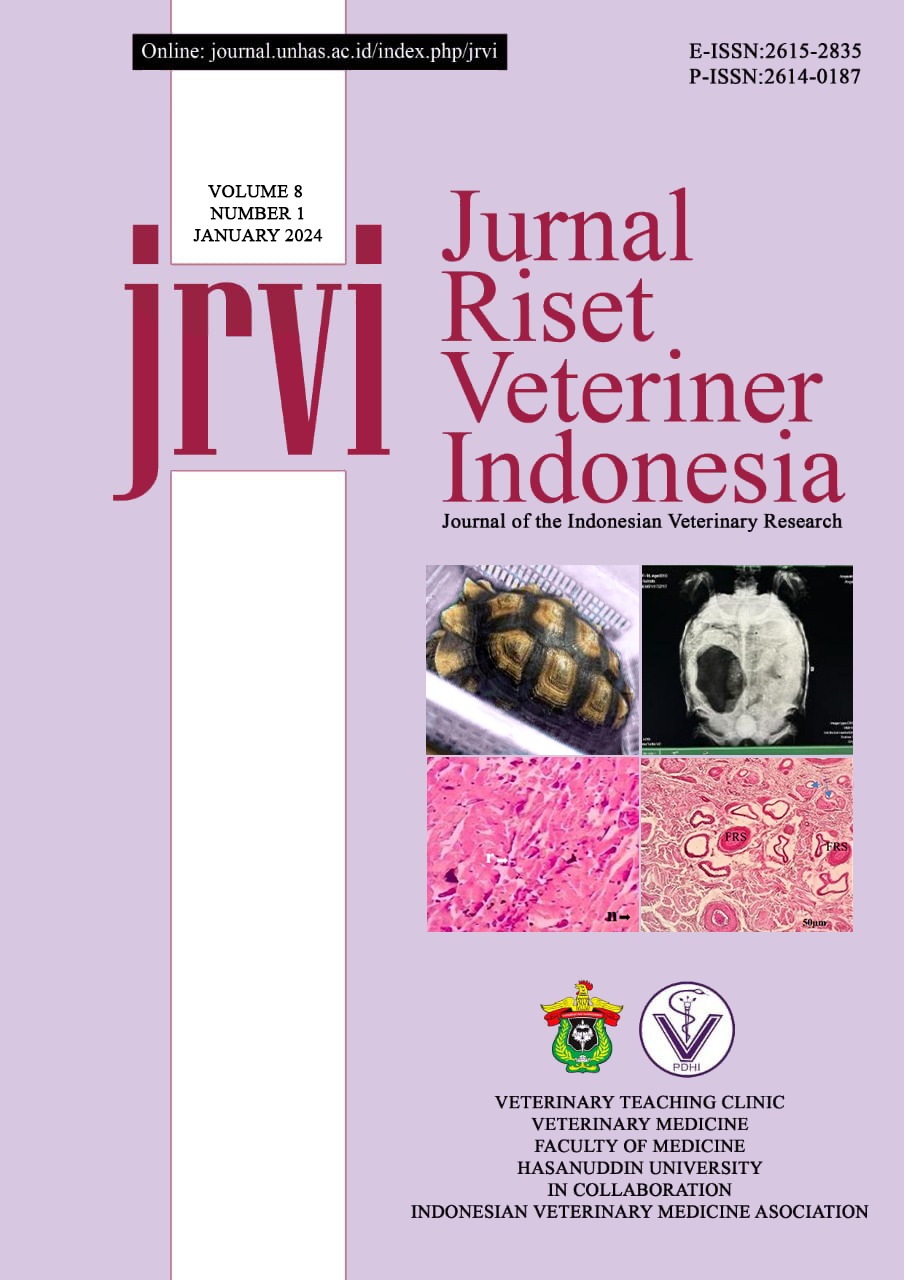Abstract
The practice of wild animal captivity serves to augment their populations and preserve their genetic integrity. The spotted deer (Axis axis) captive area at Hasanuddin University’s Faculty of Animal Science not only serves these conservation objectives but also provides an interactive experience for visitors. The welfare of these captive deer is influenced by feed management strategies, the adequacy of facilities, and the impact of visitor interactions. This study employs a semi-quantitative approach to assess the welfare practices for spotted deer at the university’s breeding center. The assessment is structured around the questionnaire provided in the Regulation of the Director General of Forest Protection and Nature Conservation No. P.6/IV-SET/2011 concerning Guidelines for Assessment of Conservation Institutions, which utilizes the five freedoms of animal welfare as its assessment framework. Observations and interviews reveal that the welfare provision for the spotted deer is rated at 66.8%, qualifying it as adequate. The assessment highlights areas where improvements can be made to enhance the overall well-being of the deer, such as customized feeding and handling of pregnant and lactating deer as well as visitor interaction management.

This work is licensed under a Creative Commons Attribution-NonCommercial 4.0 International License.


